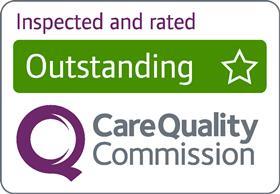Digital technology has a supportive role to play in realising the Fuller Stocktake report’s vision to create sustainable primary care for the future
The recent publication of the Fuller Stocktake report sets out a new vision for the role of primary care in integrated care systems. With primary care the bedrock of the NHS and at “the heart of communities”, the paper’s recommendation to similarly establish it at the centre of new ICS systems and foster greater collaboration is a welcome one that has been greeted positively in many quarters.
Sponsored by

Certainly, the signatures of the 42 new system leaders appended to the report indicate both support and appetite for this vision and its “philosophy of partnership”. Furthermore, they reflect just how vital the local knowledge and expertise of primary care will be in ensuring ICSs meet the health and care needs of local communities.
A core recommendation outlined in the publication is the establishment of integrated neighbourhood teams, which will be foundational to supporting improved population health outcomes at a local level. What this reflects is a move from a one-size-fits-all approach to a localised one to deliver what works best for local communities, while building on existing primary care network structures and successes from the covid-19 vaccination programme.
Indeed, examples shared within the Fuller Stocktake report illustrate that the PCNs that have had the most success in improving population health are those that have worked in cooperation with both local authority colleagues as well as communities to facilitate greater personalisation of care. While in the battle to reduce health inequalities, proactive outreach has been vital to breaking down access barriers for marginalised groups. These examples can serve as a blueprint for future working between ICS and primary care.
However, a key priority underpinning many of the recommendations made is the need to create sustainable primary care for the future. Within this, there is a challenge to tackle “inadequate access to urgent care” which the report argues is having a direct impact on general practice’s ability to provide continuity of care to patients who need it most as well as overall primary care capacity. Referred to as being two sides of the same coin, this stark recognition of current workload and workforce challenges in general practice alongside their wider contributing factors is both timely and welcome.
Certainly, here at Livi, this is something we have seen first-hand working with our GP practice partners. It’s why we’re not only working to support general practice directly, but also providing support across urgent care, ICSs, PCNs and mental health. Our vision is to ease pressure across systems and help create a more sustainable model for the future. We fully believe this system-wide focus can help deliver the “space to deliver more continuity of care” envisioned by the Fuller Stocktake report.
Digital technology also has a supportive role to play in realising the publication’s future vision for single urgent care teams. A core aim of these teams is to increase appropriate access to care. Here, digital consultations can offer patients greater choice and free capacity for those who need it most. Indeed, Livi is working with many urgent care partners in this regard, extending access in and out of hours through NHS 111 and urgent care centres, and supporting optimal signposting to primary care services. While our primary care platform, Mjog, supports remote monitoring and community health management.
As to the practicalities and next steps of integrating primary care, more of course can be found within the full report itself. A publication which the NHS Confederation notes, “must serve as a watershed moment for establishing primary care as an integral part of local systems.” We fully share this view and are ready to support on the journey.
To find out more about how we can support your organisation, contact partnerships-uk@livi.co.uk.

























